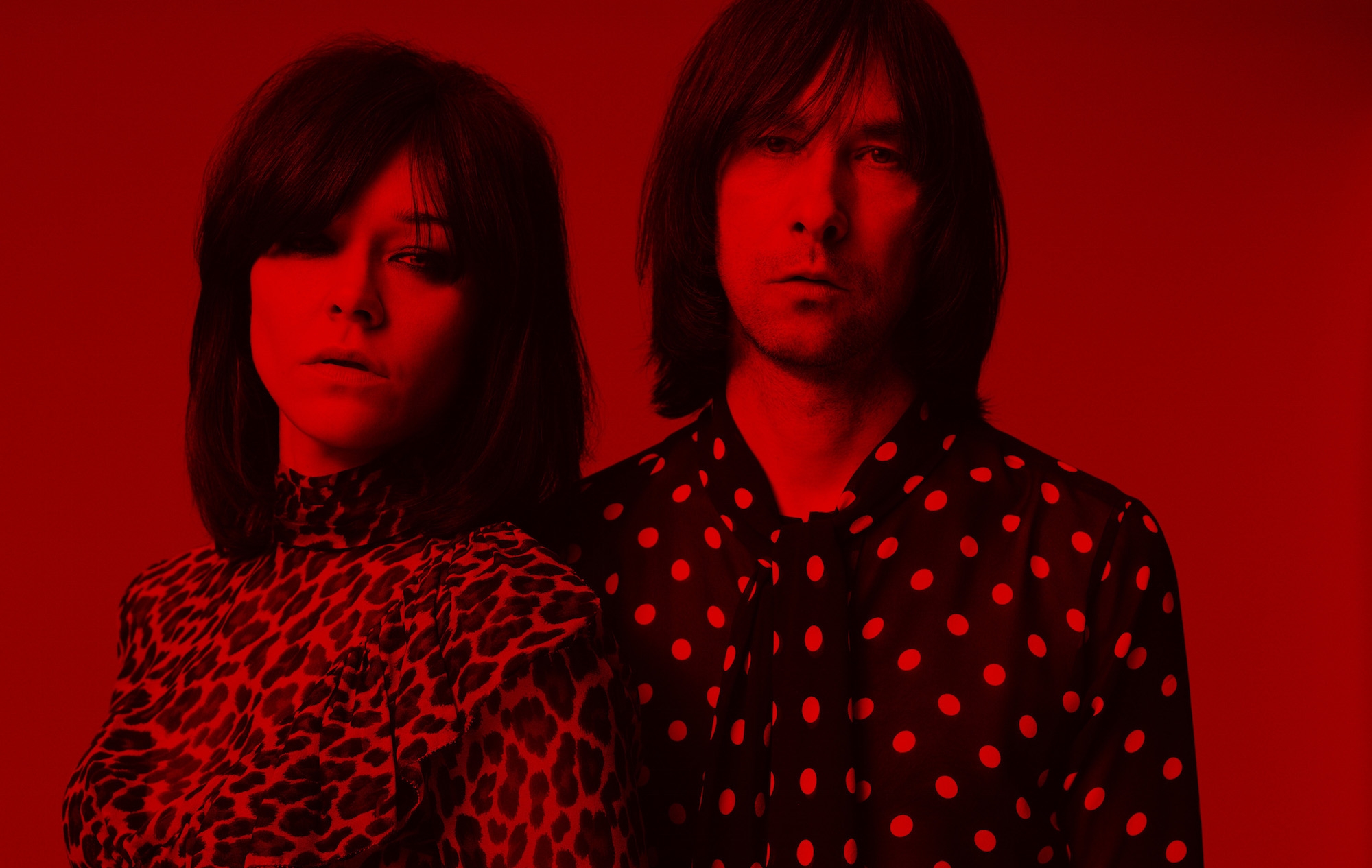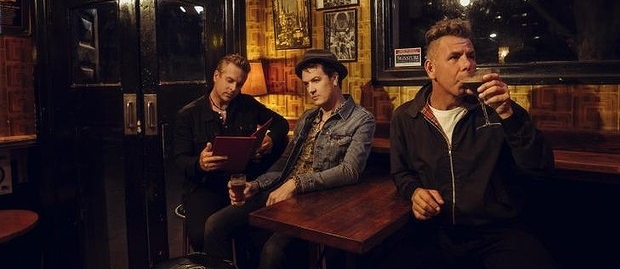“We try to keep moving on and trying new things,” he says. “I always buy new bits of equipment, and that’s how the band evolves. We don’t just sit down and write on the guitar we’ve written songs on for ages. Some of the most mental sounds on [the new album] are things [Northern Irish DJ/composer] David Holmes emailed me about. He said I should get this fuzzbox because it’s insane and told me to just buy it and don’t even think about it. What people think are distorted synths are a guitar through this crazy fuzzbox. One of the pluggers of the record said ‘What’s that terrible noise at about two-minutes-thirty? I think it’s a god-damned synthesiser; can we edit it out?’ I emailed back telling him it was one of my finest guitar solos in the last ten years. The sound evolved to be quite electronic, and because we’re using electronic synths, the drums are also quite electronic.”
After a dalliance with Byrds-esque pop the band broke big with 1991’s Screamadelica, a masterpiece of acid house and neo-psychedelia. A long period of success and excess followed, and Innes admits writing songs is much easier these days with the benefit of a clear head.
“I think you get better at your craft,” he says. “Now, the bit that’s inspiration is hard, but the bit that’s perspiration isn’t as hard. Being more together – I mean, obviously we aren’t as crazy as we were in 1993 – means you know right away what’s good or not. We don’t have that thing where you get up in the morning after working all night and don’t know whether it’s good or not; you know right away. Things are a bit less hectic than they used to be, shall we say.”
A constant in Primal Scream albums over time has been the sense that the band has its finger on the political pulse. Chaosmosis is no different, says Innes.
“Songs like Golden Rope and When the Blackout Meets the Fallout [are political],” he says. “Autumn in Paradise is about devastated towns and communities in Britain. Maybe there’s not as much in-your-face shouting about it as there has been in the past, but it’s more subtle. [The British Conservative government] made that promise about making the north a powerhouse and they don’t give a fuck; they really don’t care. As soon as the Tories got a majority they just got on with doing what they want to do, which is making the world safer for their mates, and making the world better for big business. The weird thing is, in the past the Tories would have at least thrown a bone to the middle classes, but they don’t even give a fuck about them any more. That’s how it’s changed; the doctors are on strike for God’s sake, and [the government] doesn’t care. They care about their pals; the big corporations and that’s it. And the sad thing about it is people in the south of England vote for it. People in the old industrial heartlands in the north don’t vote for it, the Scottish definitely don’t vote for it, the Welsh don’t vote for it, and the Irish don’t vote for it. My friend has a good theory that the English had their revolution too early. It was maybe 100 years too early, and then they wanted their king back. They like being subjects, but when you grow up in Scotland you’re a bit more anti-authority.”
Picking top drawer collaborators is another skill the band has mastered. This time around, Haim feature on opener Trippin’ On Your Love, Rachel Zeffira pops up on Private Wars, and Sky Ferreira duets on lead single Where the Light Gets In.
“We met Haim on Jools Holland’s show,” Innes explains. “They are lovely girls and we just clicked and liked them. They’ve got this thing that siblings have, because they’ve been singing together all their lives; they’re just good and know what they’re doing. They brought this sunshine to the record, and it was a great honour for us. They were on tour and only had something like four hours off, and they came round to the studio when they could have been having a rest. Then we had this song that we thought would be a good duet, and Sky’s name came up. Luckily we knew someone who knew her, but we thought she might not know who we were because we’re not that big in America, but she was more than happy. She can really sing and as I was recording I got to listen to just how good she is, just like I did with Robert Plant on the last album.”
The band have no immediate plans for an Australian visit, but that could all change with one phone call, Innes says. “All we need is one of those Australian promoters. I’ve been telling people that next January is free, because you can’t beat leaving [the UK] and heading south, preferably for three weeks [laughs]. If there are any promoters out there, we’re just a call away and we’re ready to work.”
BY PAUL MCBRIDE

